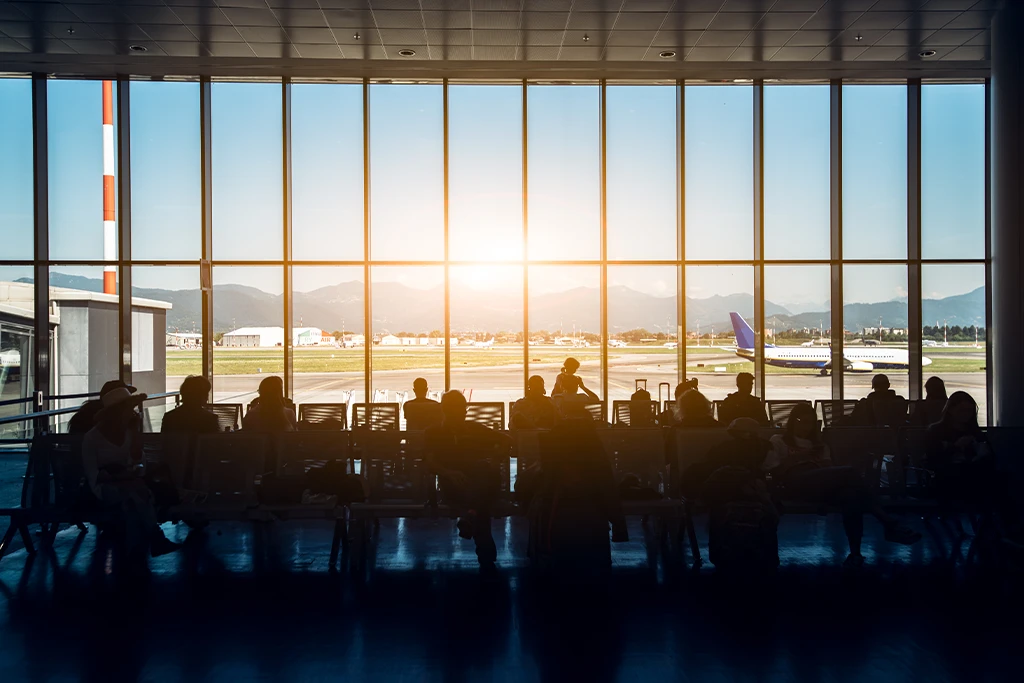A massive IT outage has thrown airlines and passengers into chaos worldwide, disrupting thousands of flights and leaving travelers stranded. Airports across the United States, Europe, and Asia struggled with check-ins, boarding, and scheduling as airlines scrambled to manage the crisis.
Airlines and Passengers Face Global Disruptions in July 2024
July 2024 brought major upheaval across the travel industry, impacting airlines and passengers worldwide. With more than 110,000 flights scheduled and at least 2,691 cancellations recorded, the global aviation system struggled under the weight of a sudden and widespread IT outage, according to leading aviation analytics firms. Carriers such as Delta, Ryanair, and Air India were heavily affected, scrambling to maintain operations as travelers faced hours of uncertainty. Some airports reverted to manual check-ins, handwritten boarding passes, and even whiteboards to convey flight information.
Challenges for Airlines and Passengers at Key Airports
Airlines and passengers encountered major hurdles at several key airports. At Edinburgh Airport, “server offline” messages greeted travelers at boarding pass scanners, forcing staff to advise travelers to check flight statuses online before arrival. In Madrid, long queues and confusing communications left passengers frustrated, while New Delhi’s Terminal 3 implemented manual workarounds, including handwritten documents and staff physically guiding travelers through check-in procedures.
IT Outage Sparks Chain Reaction in Global Flight Schedules
The interconnected nature of air travel meant that even a minor disruption in one part of the world had cascading effects elsewhere. Airlines and passengers were caught in a domino effect where delays at major hubs impacted takeoff and landing schedules throughout the day. In the United States, major carriers like American Airlines, United Airlines, and Delta Air Lines issued ground stop orders, temporarily halting all departures to mitigate chaos and prioritize passenger safety under FAA guidance.
Delays and Cancellations Continue to Disrupt Airlines and Passengers
While air traffic control systems remained operational, the ripple effects from the outage persisted. Airlines warned passengers of continued disruptions, particularly at major hubs like Atlanta, Detroit, and Salt Lake City. As delays piled up, many travelers faced last-minute cancellations and limited rebooking options. Airlines and passengers alike hoped for a swift normalization of operations, though full recovery was expected to take several days depending on local carrier capabilities.
Compensation Questions Loom for Airlines and Passengers
Compensation eligibility became a pressing concern, particularly in Europe where stringent passenger rights regulations apply. Under EU law, airlines are required to compensate travelers for delays exceeding three hours unless the disruption is classified as “extraordinary circumstances”—a category that may include major IT failures. In the United States, compensation rules are less robust, with airlines generally required to provide meal vouchers or accommodations only when delays are within their control.
Peak Travel Season Adds to Airlines and Passengers’ Frustrations
The outage coincided with the peak of summer travel, worsening the experience for airlines and passengers. Vacationers and families on school breaks packed airports to capacity, making already stressful conditions even more difficult to manage. Schiphol Airport in Amsterdam became one of the worst-affected hubs, though some airlines, such as Iberia, managed to minimize cancellations by introducing improvised solutions to maintain limited service.
The Root Cause: Microsoft Configuration Error
Microsoft confirmed that a “configuration change” within its Azure cloud services triggered widespread system failures. Cybersecurity experts suggested that a faulty software update could have contributed to the outage, compounding difficulties for airlines and passengers. Although Microsoft moved quickly to rectify the issue, the timing during one of the busiest travel periods of the year magnified the disruption’s impact.
Moving Forward: Airlines and Passengers Seek Stability
As flight operations slowly returned to normal, airlines and passengers were left to reckon with the broader implications of the outage. Questions about resilience, compensation, and contingency planning dominated industry discussions. Travelers were advised to stay in close contact with airlines, monitor flight statuses regularly, and prepare for possible residual delays as the aviation sector works to strengthen its systems against future crises.
Despite the turmoil, the aviation industry is expected to learn valuable lessons from this event, leading to stronger backup protocols and improved support for both airlines and passengers during future disruptions.
